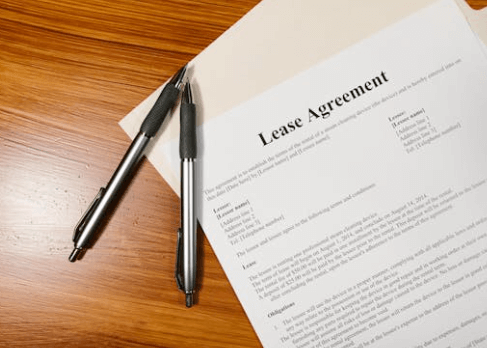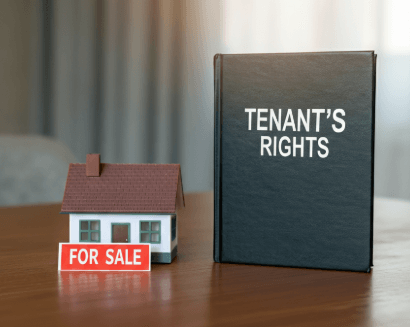Selling a rental property can unsettle many tenants, but understanding tenants’ rights when landlord sells property in Fort Myers, FL, can ease the process. Florida law ensures tenants receive adequate notice, typically 15 to 60 days, depending on their lease type, before any changes take place. It’s also important to know that your lease remains legally binding, meaning that even a new owner must honor its terms until it expires. Tenants also benefit from protections for their security deposits, as the law requires landlords to transfer deposits to the new owner or return them to tenants. Real estate experts Steve Daria and Joleigh highlight the critical role of clear communication and strict legal compliance in safeguarding the interests of both tenants and landlords during property sales. Whether facing uncertainties or simply wanting to be prepared, they offer personalized advice and solutions to ensure a smooth transition. For more clarity on tenants’ rights when landlord sells property in Fort Myers, FL, reach out to Steve Daria and Joleigh today to book a free discussion and secure peace of mind in the process.
What happens to the lease if my landlord sells the property in Fort Myers, Florida?
If your landlord sells the property in Fort Myers, Florida, your lease doesn’t automatically end.
The terms of your lease stay valid, and the new owner must honor them until the lease expires.
This means you can continue living in the property under the same conditions outlined in the original agreement.

However, if you are on a month-to-month lease, the new owner reserves the right to terminate the lease, but they must give you at least 15 days’ notice before the next rental period, as required by Florida law.
If your lease includes a clause allowing termination upon sale, the landlord or new owner must provide proper notice.
Additionally, you don’t have to pay rent to the new owner until they formally notify you of the ownership transfer.
Your security deposit should be transferred to the new owner or returned to you if required.
Review your lease carefully or consult local tenant regulations for guidance to better understand tenants’ rights when landlord sells property in Fort Myers, FL.
How much notice should a landlord give tenants before selling?
In Fort Myers, Florida, when a landlord chooses to sell their property, tenants are entitled to receive appropriate notice based on the terms of their lease agreement.
Under Florida law, landlords must give tenants reasonable advance notice before scheduling property showings, typically at least 12 hours in advance.
For tenants on month-to-month leases, landlords must give a minimum of 15 days’ notice before ending the lease due to the sale.
However, tenants with a fixed-term lease can generally stay in the property until their lease term concludes, even if it’s sold to a new owner.
A lease agreement may also include specific clauses about what happens during a property sale, so reviewing it carefully is important.
The new owner of the property will generally take over the lease and must honor its terms.
Tenants are encouraged to maintain open communication with their landlord to clarify timelines and align expectations effectively.
To fully understand tenants’ rights when landlord sells property in Fort Myers, FL, tenants can also explore legal guidelines or consult with local housing resources for assistance.
Get An Offer Today, Sell In A Matter Of Days…
What should tenants do if they haven’t received notice about the property sale?
- Ask Your Landlord Directly: If you haven’t received any official notice, reach out to your landlord for clarification. Politely ask about the status of the property and whether it’s being sold to stay informed.
- Check Your Lease Agreement: Review your lease to see if it includes any clauses about property sales. This can help you understand your rights and whether the landlord must notify you in advance.
- Keep Paying Rent as Usual: Even without notice of the sale, continue paying rent to your current landlord until you’re told otherwise. This ensures you stay in good standing as a tenant and avoids any confusion about unpaid rent.
- Document Lack of Communication: If your landlord does not respond or share updates, keep a record of your attempts to contact them. Save emails, texts, or phone conversation notes to prove your efforts to stay informed.
- Consult Local Housing Resources: If you’re unsure how to proceed, seek help from local tenant advocacy groups or legal resources. They can explain tenant rights in Fort Myers and guide you on what to do when landlords don’t communicate during property sales.
Can new property owners change the lease terms after buying the property in Fort Myers, Florida?
In Fort Myers, Florida, when a rental property changes ownership, the new landlord cannot alter the existing lease terms without the tenant’s agreement.
The lease is a binding contract, and the new owner must follow its terms until it expires.
For example, the monthly rent, duration of the lease, and other details like maintenance responsibilities remain the same.
If the tenant agrees, both parties can discuss modifying the lease terms, but this must be done in writing and signed by both the tenant and the new landlord.
The new owner can, however, make changes to the lease when it is time for renewal.
Following Florida law, if the lease is on a month-to-month basis, the landlord can provide notice of any changes, such as rent increases.
Tenants should read any new terms carefully and ensure they align with their rights.
Understanding tenants’ rights when landlord sells property in Fort Myers, FL, can help tenants avoid confusion and protect themselves during the transfer of property ownership.
What should I do if I think my landlord isn’t following the law?
- Read Your Lease Agreement: Review your lease to understand your rights and landlord’s obligations. This can help you spot any violations or missing responsibilities.
- Document the Problem: Keep a record of the issues you’re experiencing. Write down dates, take photos, and save any messages or notices from your landlord as evidence.
- Communicate with Your Landlord: Try discussing the problem with your landlord directly. Explain the issue and give them a chance to resolve it before taking further action.
- Learn Your Local Tenant Rights: Research your local and state laws to understand your rights as a tenant. Many tenant advocacy websites and housing offices provide clear information.
- Contact a Tenant Advocacy Group: Reach out to local tenant organizations or nonprofits for guidance. They can provide advice and resources or even help you mediate with your landlord.
- Submit a Complaint: File a complaint with your local housing authority if your landlord doesn’t resolve the issue. This ensures your concerns are taken seriously.
- Consult a Lawyer: Consider seeking legal counsel if the issue persists or escalates. A lawyer specializing in housing laws can guide you on protecting your rights and taking appropriate legal action if needed.

How can tenants ensure their rights are protected during a property sale in Fort Myers, Florida?
Tenants in Fort Myers, Florida, can proactively ensure their rights are safeguarded during a property sale.
Start by reviewing your lease agreement to fully understand its terms, as this contract remains legally binding even after the property changes hands.
Open communication with your current landlord is crucial to stay updated on the sale process and any potential transitions.
Be sure to document everything, such as written notices or emails, to create a solid record of the situation.
When the new owner takes over, confirm who they are, where to pay your rent, and their responsibilities for maintaining the property.
Tenants’ rights when landlord sells property in Fort Myers, FL, include keeping lease terms unchanged and ensuring landlords follow proper legal procedures.
If you have concerns or need clarity, consult local resources or experts who understand real estate and tenant rights.
For reliable advice, contact experienced real estate investors Steve Daria and Joleigh.
They focus on buying houses for cash and provide guidance to tenants during landlord transitions.
Protect yourself by staying informed and taking action!
Takeaways
- The Lease Stays Valid: If a property is sold, your lease agreement remains in place. The new owner must honor all the terms, including the rent amount and lease duration until the lease expires.
- Notice Requirements: Landlords must inform tenants of the sale or ownership change. This ensures that tenants know who to contact for rent payments and property concerns moving forward.
- No Immediate Eviction: A property sale doesn’t mean tenants must leave immediately. Unless the lease has ended or proper legal procedures are followed, tenants have the right to stay.
- Legal Protections for Tenants: Florida laws ensure landlords and buyers can’t terminate your lease or increase rent abruptly. These protections are designed to prevent unfair treatment during property sales.
- Know Your Resources: Understanding your rights and where to seek help is essential. Tenant advocacy groups and real estate experts like Steve Daria and Joleigh can provide valuable guidance during ownership changes.
**NOTICE: Please note that the content presented in this post is intended solely for informational and educational purposes. It should not be construed as legal or financial advice or relied upon as a replacement for consultation with a qualified attorney or CPA. For specific guidance on legal or financial matters, readers are encouraged to seek professional assistance from an attorney, CPA, or other appropriate professional regarding the subject matter.

